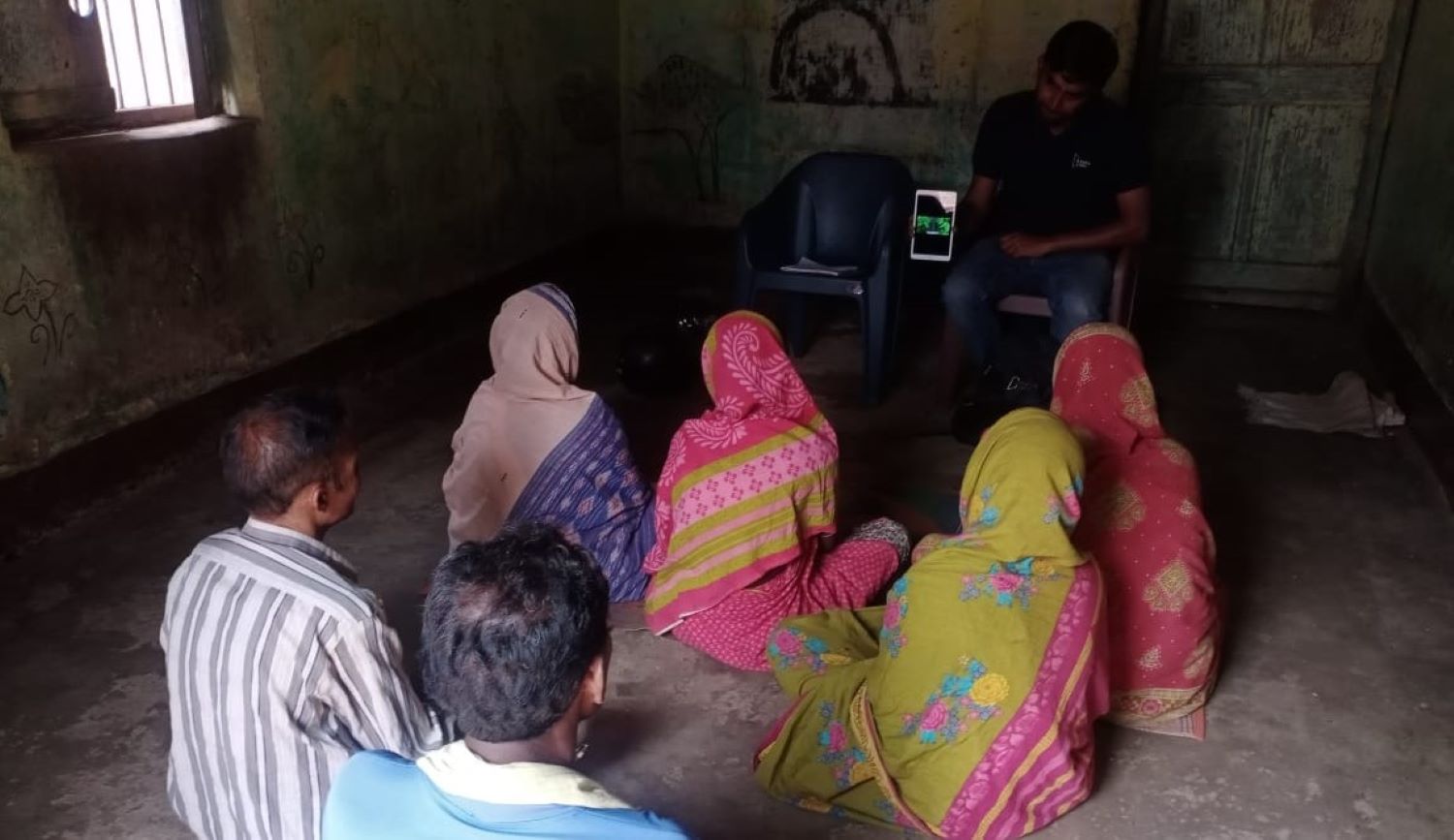Gender Norms and Agricultural Credit in Odisha

Study participants learning about KhetScore | Credit: Shashank Bhushan Das – Dvara E-Registry
Context
In lower-middle-income countries like India, smallholder farmers often lack access to credit from formal financial institutions, a challenge which is often exacerbated for women. Though women account for nearly half of the agricultural labor force, they typically have lower output per unit of land relative to men due to differences in access to inputs, resources, and services (like credit).
Dvara E-Registry is working to expand access to credit for marginalized (often women) farmers through KhetScore–an algorithm that predicts farmers’ expected revenues from satellite imagery and georeferenced smartphone pictures and uses these predictions as the basis for scoring farmers’ creditworthiness. The use of satellite imagery can also be used to verify the extent of crop damages, informing crop insurance coverage and helping farmers de-risk their investments. This process could reduce the cost of screening and monitoring agricultural loans, expanding access to credit, especially for women farmers who typically lack land records; but it could also disempower women, given their limited mobility and smartphone access relative to men.
Study Design
The researchers completed pilots to investigate two primary questions: (1) Do digital technologies like KhetScore affect farmers’ access to credit, and do they (dis)empower women relative to men? And (2) can gender sensitization training challenging traditional gender norms increase women’s take up of digital credit for agricultural production?
First, the researchers analyzed quantitative survey data and qualitative interviews with 3,514 men and women from two rural districts in the state of Odisha to understand the relationships between respondent gender (and for women, their level of empowerment) and their demand for and access to credit. Second, they implemented a small-scale randomized evaluation among a subsample of the study population (1,228 respondents from 614 households) to test whether, and to what extent, a training module could shift prevailing gender norms and increase women’s demand for credit. The training aimed to depict women as entrepreneurial farmers and advocated for women to deserve a stronger say in credit decisions, challenging customary beliefs that women do not provide important contributions to agricultural work and should play a limited role in related decision-making.
Results and Policy Lessons
The researchers found strong gender norms about women’s role in agriculture, as well as a correlation between women’s empowerment and their demand for agricultural credit. A minority of women have a final say in the decision to take out an agricultural loan, and while women typically report lower demand for agricultural credit relative to men, they are significantly more likely to have a loan taken out in their name. The gender messaging did not help shift these norms (though anecdotal evidence suggests the training may have been more engaging when held in-person, rather than delivered virtually to adapt to COVID-19). For more detail on these challenges and the results of the sensitization training see this project blog.
While video-based gender sensitization did not prove effective, women reported increased demand for loans if the KhetScore digital technology would be used to assess their creditworthiness and provide risk-protection services. Although women prefer borrowing smaller amounts than men, when informed that loans would be scored using KhetScore technology, women’s reported likelihood of applying for a loan, as well as their preferred loan size, increased more than men’s. Though combining loans with crop insurance through KhetScore technology similarly affected women’s and men’s reported likelihood of applying for credit, introducing insurance was associated with a larger increase in women’s preferred loan size relative to men’s. The research team concludes that shifting norms directly through training may be difficult, but that digital technology could help increase the number of women with agricultural loans, which may increase women’s visibility in agriculture and potentially shift gender norms over time.

